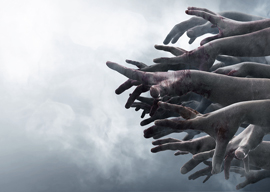
March 17, 2018

Source: Bigstock
In the case from the 1740s, the wicked widow showed some spirit before her execution. In those days, executions were public, not the hole-in-the-corner affairs that they subsequently became, and the widow asked to be executed with her daughter early in the morning before the crowd could gather to watch it. She roused her daughter very early in the morning, telling her that if she did not get ready quickly, “they should not be hanged in peace.” On the way to the scaffold, she sent back for her cloak, “lest,” she said, “I catch cold.” Up until the end of the abolition of the death penalty, a man had to be in his right mind before he could be executed—presumably because, if he were not, his execution would teach him nothing.
The early-morning execution of the wicked widow and her daughter was a great disappointment. Roughead writes, quoting from a contemporary account:
“The Country was very much irritated at the early Execution. About Ten [in the morning] the Town was very full of Country People who came from far and near,” and naturally enough, in the circumstances, were greatly disappointed at missing the show.
I was reminded of my entry into Maiduguri, a town in Northern Nigeria, in 1996. It was completely empty, and I was told that everyone was away at the public executions. The evening television news that night told how the execution ground had been waterlogged overnight by rain, and it was thought that the executions, to the great disappointment of the gathered crowd, might have had to be delayed. “But luckily,” said the newsreader, “some dry ground into which the stakes could be driven was found.”
For the first time in my life, I realized that good and bad luck were two sides of the same coin.